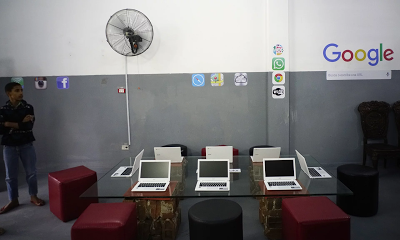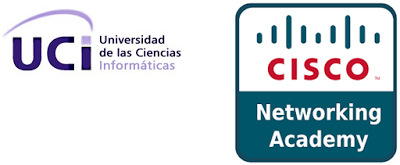Cuba USA
There were important financial and university-related announcements.
Last month, I speculated on possible Internet-related announcements that might be made in conjunction with the visit of President Obama. Nothing I mentioned came up, but let's look at what was announced just before and during the President's visit.
 The week before the President arrived in Cuba, changes in regulations on travel, trade and finance were announced. Two of those changes were:
The week before the President arrived in Cuba, changes in regulations on travel, trade and finance were announced. Two of those changes were:
The same week Verizon announced an agreement to provide direct telephone connections to Cuba. That is nice, but it does not provide Internet connectivity. There were rumors that AT&T would make an announcement during the visit, but, as far as I know they did not.
During the visit, several further developments were announced.
Silicon Valley payments startup Stripe will make it possible to give Cuban entrepreneurs access to the US financial system. Cubans will be able to incorporate a US company, set up a US bank account, and start accepting payments from the US. Stripe will be working with the Merchise Startup Circle, which has been working to form and facilitate a Cuban startup community. Again, the ball is in Cuba's court. Will they allow self-employed workers or cooperatives to open those accounts?
There was more financial news. Paypal expects to bring Xoom, their global money transfer service, to Cuba by the end of the year and Western Union announced that they would phase in money transfers starting at the end of the second quarter. (It seems like they are already offering that service -- perhaps a reader can clarify this for me).
Priceline subsidiary Booking.com will offer online reservations at Cuban hotels and Airbnb announced that they were no longer restricted to serving US customers and would book rooms for anyone travelling to Cuba.
The most widely publicized announcement was that Google would offer free, high-speed Internet access to Cubans at a technology center belonging to the Cuban artist Kcho. The center will also have laptops, Google Cardboard and phones.
The announcement referred to 70 mbps speeds and 40 simultaneous users, but it is not clear whether those users will each have 70 mbps or they will be sharing it. I have asked Google for clarification, but have not received a response.
If it is shared, it will be similar to their current hotspots, but free. If it is per user, it will be inspirational and novel and there will be very long lines waiting to get in.
Regardless, like Kcho's earlier free access over DSL, it is a drop in the bucket and to a great extent a publicity stunt. That being said, both the President and Google executive Brett Perlmutter implied that this was just Google's first foray into Cuba and they hoped to announce more in the future.
President Obama announced a $1 million fund for US-Cuba academic partnerships. The impact of this program will not be immediate, but it is important. Today, the few Cuban students with Internet access have slow connections and tight usage caps. Imagine the reaction of a Cuban exchange student in a computer lab in a US university with gigabit connectivity. Similarly, what insights might come from the exposure of a US student to the constraints on and innovations by Cubans?
A university was also involved in what may have been the most important announcement. Last January, a high-level US delegation travelled to Cuba. At that time, Cisco proposed the establishment of a Cisco Academy training and certification program at Cuba's prestigious University of Information Science. The proposal has been accepted.
This is great news and it implies a Cuban willingness to be open to competition in the infrastructure market. In the early days, Cisco equipment was used in Cuba, but today Huawei is dominant. Cisco-certified graduates will be ready to work with Cisco equipment.
Now, if Cuba would also be willing to allow competition in the Internet service market ...
- Opening Of The Google+kcho Tech Center -- Much Ado About Not Much (again)
The opening of the Google+Kcho technology center was covered in an article in CubaDebate, which includes 14 photos and two videos. Google has equipped the center with 20 Acer Chromebooks and a number of Nexus 5 phones and Cardboard viewers. Each Chromebook...
- Trying To Clarify The Latest U. S. Opening To Cuba -- And Failing
One way to get clarification is to offer some Cuban software for sale and see what happens -- in the U. S. and in Cuba. Last September, the Office of Foreign Assets Control (OFAC) eased restrictions on trade with Cuba. Restrictions were reduced in many...
- In A Nation With Nearly No Internet Access, A Little Bit Gets A Lot Of Hype.
In mid June, Cuba announced a plan to provide public access at 35 WiFi hotspots. As we noted, 35 WiFi hotspots is a drop in the bucket for a nation with over 11 million people, yet they have received a lot of press coverage. A Google search found 651...
- Cuban Apps In Google's (or Anyone Else's) Online Store?
A Google delegation, led by Scott Carpenter, Deputy Director of Google Ideas, and Brett Perlmutter, who had accompanied Eric Schmidt on his Cuban visit earlier this year, is in Cuba. They have visited two important technical universities and some of the...
- Google Has Made Chrome Available For Download In Cuba – What Has Changed?
Google announced yesterday that folks with Cuban IP addresses can now surf to www.google.com.cu and download a copy of the Chrome browser. That is a small bit of good news, but, what has changed? While Google could not legally "export" Chrome to Cuba...
Cuba USA
Internet-related announcements around President Obama's trip to Cuba
There were important financial and university-related announcements.
Last month, I speculated on possible Internet-related announcements that might be made in conjunction with the visit of President Obama. Nothing I mentioned came up, but let's look at what was announced just before and during the President's visit.

- Cuban origin software is now authorized for importation into the United States.
- Non-immigrant Cuban nationals in the United States will be permitted to earn a salary or compensation consistent with their visa status. U.S. companies are now also authorized to sponsor or hire Cuban nationals to work or perform in the United States.
The same week Verizon announced an agreement to provide direct telephone connections to Cuba. That is nice, but it does not provide Internet connectivity. There were rumors that AT&T would make an announcement during the visit, but, as far as I know they did not.
During the visit, several further developments were announced.
Silicon Valley payments startup Stripe will make it possible to give Cuban entrepreneurs access to the US financial system. Cubans will be able to incorporate a US company, set up a US bank account, and start accepting payments from the US. Stripe will be working with the Merchise Startup Circle, which has been working to form and facilitate a Cuban startup community. Again, the ball is in Cuba's court. Will they allow self-employed workers or cooperatives to open those accounts?
There was more financial news. Paypal expects to bring Xoom, their global money transfer service, to Cuba by the end of the year and Western Union announced that they would phase in money transfers starting at the end of the second quarter. (It seems like they are already offering that service -- perhaps a reader can clarify this for me).
Priceline subsidiary Booking.com will offer online reservations at Cuban hotels and Airbnb announced that they were no longer restricted to serving US customers and would book rooms for anyone travelling to Cuba.
 |
| Google tech center -- not sure what it will provide. Photo by Ramón Espinosa/AP |
The most widely publicized announcement was that Google would offer free, high-speed Internet access to Cubans at a technology center belonging to the Cuban artist Kcho. The center will also have laptops, Google Cardboard and phones.
The announcement referred to 70 mbps speeds and 40 simultaneous users, but it is not clear whether those users will each have 70 mbps or they will be sharing it. I have asked Google for clarification, but have not received a response.
If it is shared, it will be similar to their current hotspots, but free. If it is per user, it will be inspirational and novel and there will be very long lines waiting to get in.
Regardless, like Kcho's earlier free access over DSL, it is a drop in the bucket and to a great extent a publicity stunt. That being said, both the President and Google executive Brett Perlmutter implied that this was just Google's first foray into Cuba and they hoped to announce more in the future.
President Obama announced a $1 million fund for US-Cuba academic partnerships. The impact of this program will not be immediate, but it is important. Today, the few Cuban students with Internet access have slow connections and tight usage caps. Imagine the reaction of a Cuban exchange student in a computer lab in a US university with gigabit connectivity. Similarly, what insights might come from the exposure of a US student to the constraints on and innovations by Cubans?
 |
| Cisco training at UCI may foreshadow competition for Huawei. |
A university was also involved in what may have been the most important announcement. Last January, a high-level US delegation travelled to Cuba. At that time, Cisco proposed the establishment of a Cisco Academy training and certification program at Cuba's prestigious University of Information Science. The proposal has been accepted.
This is great news and it implies a Cuban willingness to be open to competition in the infrastructure market. In the early days, Cisco equipment was used in Cuba, but today Huawei is dominant. Cisco-certified graduates will be ready to work with Cisco equipment.
Now, if Cuba would also be willing to allow competition in the Internet service market ...
- Opening Of The Google+kcho Tech Center -- Much Ado About Not Much (again)
The opening of the Google+Kcho technology center was covered in an article in CubaDebate, which includes 14 photos and two videos. Google has equipped the center with 20 Acer Chromebooks and a number of Nexus 5 phones and Cardboard viewers. Each Chromebook...
- Trying To Clarify The Latest U. S. Opening To Cuba -- And Failing
One way to get clarification is to offer some Cuban software for sale and see what happens -- in the U. S. and in Cuba. Last September, the Office of Foreign Assets Control (OFAC) eased restrictions on trade with Cuba. Restrictions were reduced in many...
- In A Nation With Nearly No Internet Access, A Little Bit Gets A Lot Of Hype.
In mid June, Cuba announced a plan to provide public access at 35 WiFi hotspots. As we noted, 35 WiFi hotspots is a drop in the bucket for a nation with over 11 million people, yet they have received a lot of press coverage. A Google search found 651...
- Cuban Apps In Google's (or Anyone Else's) Online Store?
A Google delegation, led by Scott Carpenter, Deputy Director of Google Ideas, and Brett Perlmutter, who had accompanied Eric Schmidt on his Cuban visit earlier this year, is in Cuba. They have visited two important technical universities and some of the...
- Google Has Made Chrome Available For Download In Cuba – What Has Changed?
Google announced yesterday that folks with Cuban IP addresses can now surf to www.google.com.cu and download a copy of the Chrome browser. That is a small bit of good news, but, what has changed? While Google could not legally "export" Chrome to Cuba...
